
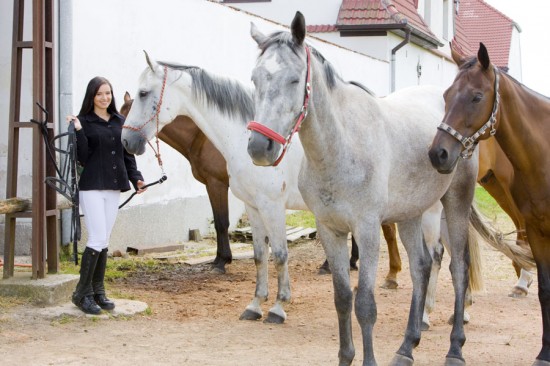
If you're asking the question then the chances are you've never owned a horse before. And considering which breed to choose is a good place to begin the quest for your dream equine partner, as most breeds display very distinct characteristics and temperaments.
There are over 260 documented horse breeds in the world, some of which are great riding horses, some are better for driving or racing, while others are great for herding cattle or sheep. It's important to remember that each horse is an individual, but thinking about what you want your horse to do will mean certain breeds may be more suitable than others.
As you begin to examine the traits of the many different breeds, you will soon see that some lend themselves to certain jobs better than others.
For example, a native breed such as a Welsh pony or cob would be a perfect 'happy hacker'. These sturdy horses and ponies can live out all year and their docile temperament means they would be perfect for ambling around the lanes on a sunny (or not so sunny...!) afternoon.
If you want something that can offer a bit more speed and versatility you could consider a warmblood. These horses are often called the perfect allrounder, offering speed and agility as well as a calm, trainable character thanks to its hot and coldblood breeding. Warmbloods make excellent show jumpers, dressage horses and eventers.
If you want a horse to win races or stop traffic, a hotblood such as a thoroughbred or Arabian may be for you. These horses often require careful handling as they are true 'flight' animals that spook easily and tend to have a lot of nervous energy. That said, many people are now retraining former racehorses for a variety of uses - eventing, show jumping and dressage, and these spirited horses are proving very successful in those spheres.
So what do the terms cold, warm and hotblood actually mean? Well, these terms are a bit of a misnomer as all horses are mammals and therefore warmblooded. However in equine terms cold blooded usually means a hardy native (Northern or Western) breed used for heavy work. Cold blooded breeds include ponies such as welsh and highland, as well as large draught animals including the Suffolk Punch, Clydesdale, Percheron and Shire.
Warmbloods are usually sport horses and have both cold and hot blood in their lineage. As we've already seen, the warmblood excels in most spheres and breeds include the Hanoverian, Lipizzaner, Friesian and Andalusian.
Hotblooded animals are usually descended from the Eastern breeds such as the Arabian and the lesser-known Akhal-teke and Barb. The modern thoroughbred and most 'speed' horses are descended from hotbloods.
Many British racehorses can trace their lineage back to three foundation sires brought into Great Britain in the 17th and 18th Centuries. The Byerly Turk, the Godolphin Arabian and the Darley Arabian are often quoted as the founders of modern thoroughbred racing.
The purpose of dressage is to develop the horse's natural athleticism and obedience so it stands to reason that some breeds are well suited to this kind of work. Don't be fooled into thinking that dressage is easy. It isn't. It's hard work for the horse - you only have to look at the musculature of top dressage horses to know they work very hard indeed. And it's hard work for the rider. High-level riders train every day and strive to develop a partnership with their horse so it's willing to work for them. Many experts say that the bond between a dressage horse and its rider is like a marriage!
Many of the warmblood breeds such as the Friesian, Holsteiner, Oldenburg and KWPN (Dutch Warmblood) make excellent dressage horses. As riders progress through the levels of dressage, more is demanded of the horse - moves such as the levade, capriole and croupade involve the horse leaving the ground as it performs these complicated manoeuvres and some breeds are better at this than others. Breeds that excel at 'airs above the ground' include Andalusian, Lusitano and Lipizzaner. The good news though, is that dressage is an egalitarian sport meaning any breed can compete against all others.
Again the warmbloods reign supreme in the show jumping arena, however there are other breeds that give them a run for their money.
Crossbred horses such as the ISH (Irish Sports Horse: Thoroughbred x Irish Draught) and some natives including the intelligent, energetic Connemara are also known to have great success show jumping. Thoroughbreds can also jump successfully and again, show jumping is a sport that is not breed-specific so any horse can have a go and many thoroughly enjoy it.
Like jumping and dressage, eventing is a sport that is not aimed at one particular breed of horse, however any horse that does compete in eventing - be it one or three-day competition, needs to have stamina by the bucket load.
Eventing combines all three disciplines of dressage, show jumping and cross country - a long, galloping track with 'natural' obstacles such as logs and ditches. Cross country tests the nerve of the most experienced horse and rider combinations and while most competitors agree it is the most exciting phase of an eventing competition, going cross country takes accuracy and courage.
Warmblood breeds are again very popular as event horses as they are trainable, obedient and display natural athleticism and therefore stamina. However many riders are beginning to look to former racehorses as a viable option for eventing. These horses have enormous power, speed and more importantly, the stamina and bravery required to compete very successfully and many competitions now feature a, 'ROR' (Retraining of Racehorses) class in a bid to highlight the many retired thoroughbreds in need of a new lease of life.
If you're looking for a horse for hacking and occasional schooling then a native breed such as a Welsh cob would be a great choice. These horses are hardy and can live in or out and they also benefit from a calm, almost docile temperament so don't tend to spook easily - although there's an exception to every rule! They come in a variety of shapes and sizes and can make excellent weight carriers.
Driving horses such as Trotters and Hackneys should display boldness and a willingness to learn, as well as a sensible head. Driving ponies like the Fell, the Haflinger and Highland also display an intelligence, build and sure footedness that make them perfect for driving competitions such as the scurry.
If you are thinking about showing, either in-hand or ridden, then you can select your competition according to the breed you have. You need to take the conformation of your horse into account and be honest about any physical abnormalities such as cysts or sarcoids as these will affect marks, but as with most disciplines, at the grassroots level there is usually something for everyone. Most breed associations will host showing events, as will pony and riding clubs and it's a great way of getting out and competing without worrying too much about having to jump or perform a perfect flying change - particularly if you choose in-hand classes. However, you will need to be fastidious about turnout for both you and your horse.
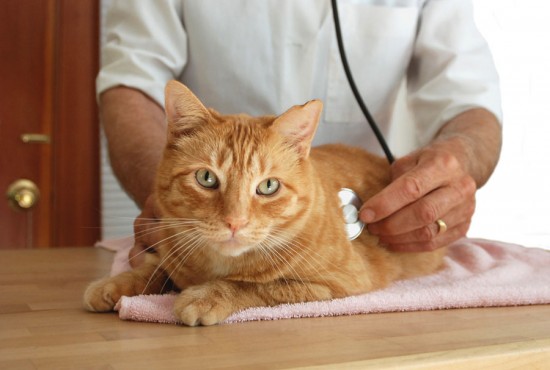 Dealing With Felv (feline Leukaemia Virus) In Cats
Dealing With Felv (feline Leukaemia Virus) In Cats
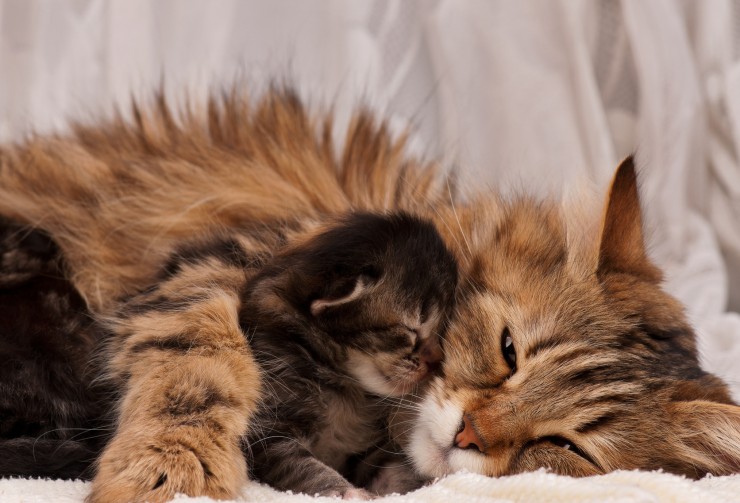 What You Can Expect From Your Cat’s Behaviour When They Have A Litter
What You Can Expect From Your Cat’s Behaviour When They Have A Litter
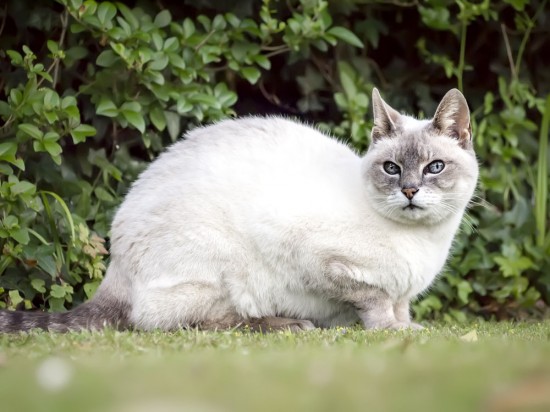 The Top Five Most Commonly Overlooked Health Problems In Cats
The Top Five Most Commonly Overlooked Health Problems In Cats
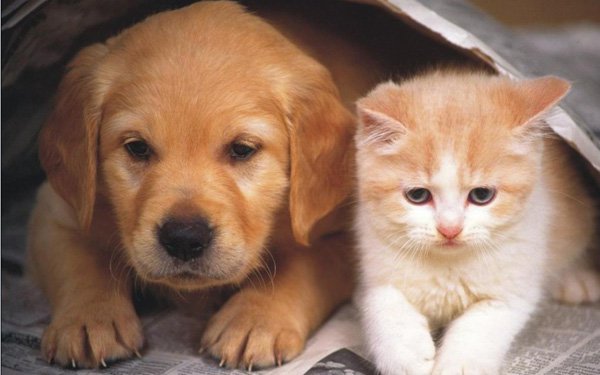 Tips To Buy Rabbit Hutches Online In UK
Tips To Buy Rabbit Hutches Online In UK
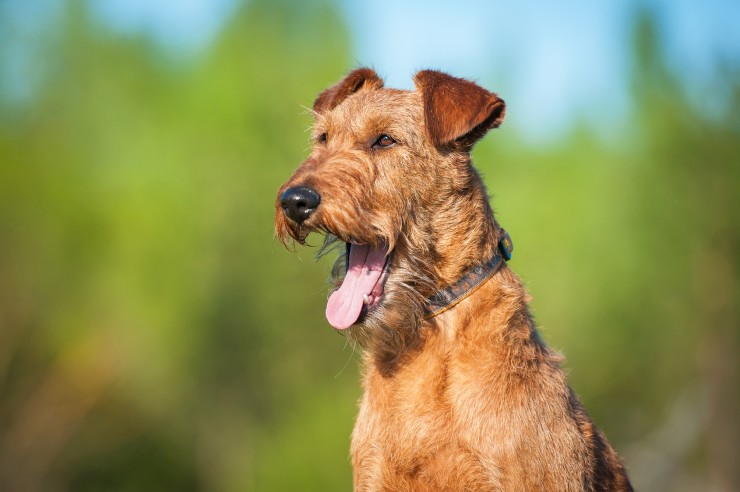 The Differences Between Parvovirus And Canine Distemper
The Differences Between Parvovirus And Canine Distemper
 What should Dog Food contain ?
What should Dog Food contain ?
Copyright © 2005-2016 Pet Information All Rights Reserved
Contact us: www162date@outlook.com